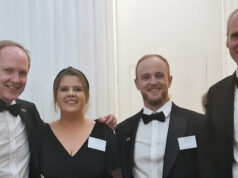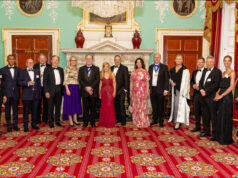By Alec Hogg*
South Africans love talking about the nation’s resilience. Right now its economy needs every ounce of that legendary bounce-back-ability. Because not since the early 1990s when it suffered three successive years of contraction, has the economic outlook been as challenging.
Stats SA figures show that during the second quarter of 2015, on a seasonally adjusted basis South Africa’s economy shrank 1.3%. Five of 10 sectors contracted, led by a 17.4% year-on-year collapse for agriculture, hit by the worst drought since 1992. Substantial declines were also reported for mining and manufacturing.
By the very definition of a developing country, any period of economic contraction is unusual. Indeed, since democracy dawned in 1994, South Africa experienced only one year – 2009 – of “negative” economic growth.
The biggest concern surrounding the current situation, however, is the absence of anything obvious that will trigger a turnaround.
Worse, the reverse has happened at a time optimists expected a bonus from a collapse in the oil price. As the country imports around three quarters of its requirements, South Africa was cited among the major beneficiaries of crude’s changed fortunes.
Two factors meant little benefit has been felt in the real economy.
The Government deliberately used the lower oil price to shore up national finances through an 81c a litre hike in the fuel levy – from R3.30 to R4.13 – in the February 2015 Budget. Whatever other relief might have worked through has been offset by a sliding Rand.
As a result, South Africans are paying virtually the same price for petrol and diesel as when the dollar price of crude was more than double its current level.
While the worst drought in 23 years could be ascribed to bad luck, most of the country’s other current economic challenges are self-inflicted.
Leading these is the poor political decision to block timeous expansion by electricity utility Eskom of its production capacity.
Resulting shortages have led to electricity rationing across the economy, with “loadshedding” experienced so far on 99 days in 2015 – 40% of the time – forcing mines to curtail development and manufacturers to cut production. In the second quarter, these key sectors contracted over 6% year-on-year.
Uncertainty around Black Economic Empowerment laws, specifically the previously accepted notion of once-empowered-always-empowered, has also rattled business.
This shifting of goalposts on equity ownership is proving a significant disincentive for fresh fixed investment. That has been exacerbated by the natural expansion of South African businesses into the global arena.
Overlaying all these issues is a resuscitation of a socialist political agenda, especially evident since President Jacob Zuma began his second term in May 2014. Trust between business and Government is plumbing new depths.
A closed meeting between the parties in August that was intended to improve trust levels, went the wrong way.
Half of the eight working groups were denied the opportunity to report back by an impromptu attack on alleged corporate greed by SA Communist Party general secretary Blade Nzimande, a powerful member of Zuma’s inner sanctum.
Nzimande repeated his perspective in a recent interview on Biznews.com when criticising business for being “too greedy and uncaring.” Blaming the private sector for SA’s economic woes has become a popular refrain from politicians in the ruling party, including a widely reported outburst by President Jacob Zuma at the official switch-on of the Medupi power station.
* Alec Hogg, a leading South African broadcaster and writer on financial matters, is the publisher and editor of Biznews.com









